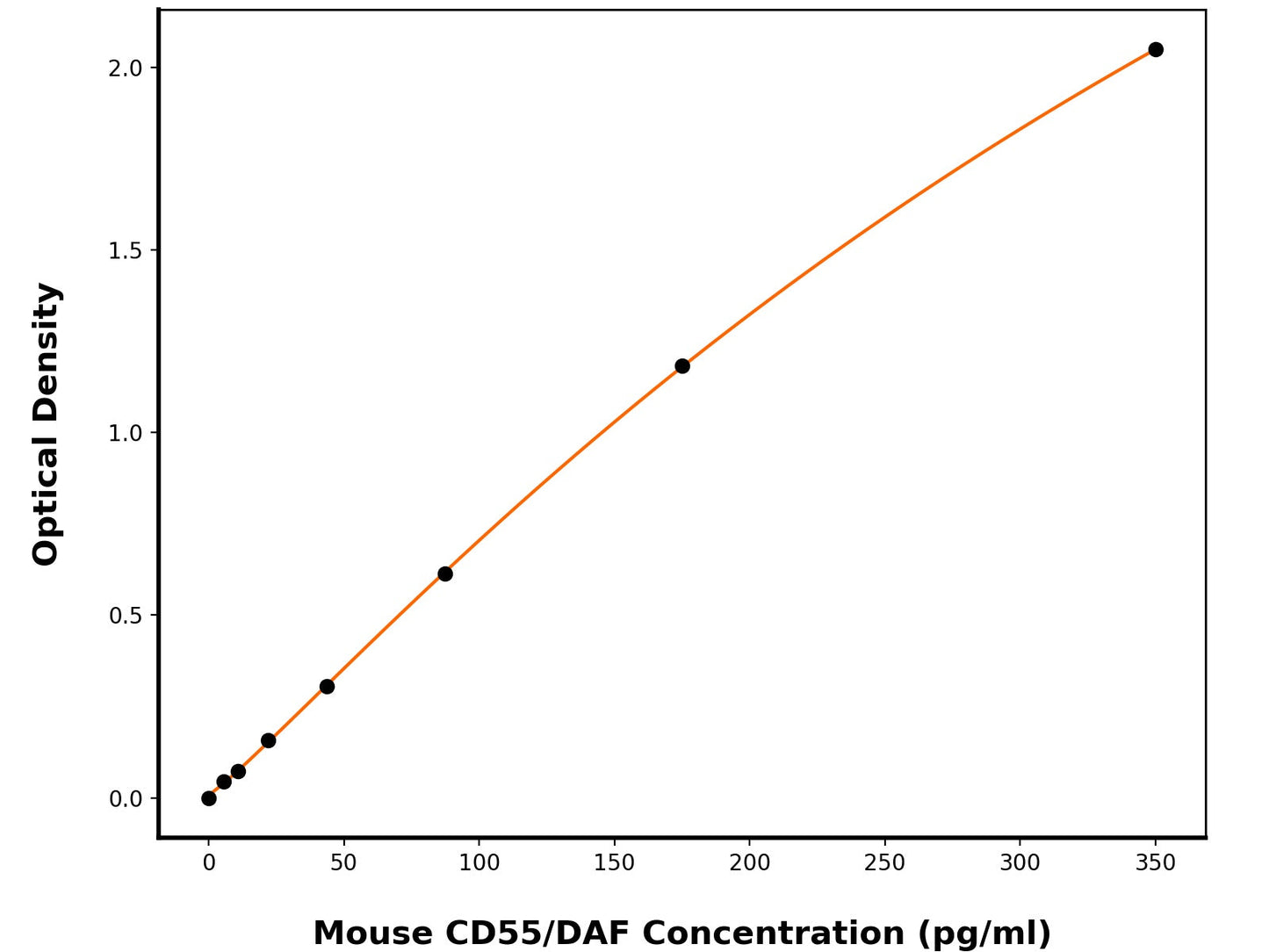1
/
of
1
Mouse Complement Decay-Accelerating Factor Gpi-Anchored (CD55) ELISA Kit
Mouse Complement Decay-Accelerating Factor Gpi-Anchored (CD55) ELISA Kit
This ELISA kit is designed to detect Mouse Complement Decay-Accelerating Factor Gpi-Anchored (Mouse CD55). The assay plate has been pre-coated with mouse anti-Mouse CD55 monoclonal antibody. When the sample containing CD55 is added to the plate, it binds to the antibodies coated on the wells. Then, a horseradish peroxidase conjugated mouse anti-Mouse CD55 Antibody is added to the wells and binds to CD55 in the sample. After washing the wells, substrate solutions are added, and the color intensity is directly proportional to the amount of Mouse CD55 present. The reaction is stopped by adding an acidic stop solution, and the absorbance is measured at 450 nm.
Catalog No:
BPE322
Regular price
$754.00 USD
Regular price
$580.00 USD
Sale price
$754.00 USD
Unit price
/
per
2 weeks
Couldn't load pickup availability
Product Details
Species Reactivity
Mouse
Sensitivity
1.03 pg/mL
Detection Range
5.47-350 pg/mL
Sample Type
Serum, plasma, cell culture supernates
Incubation(s)
3.5 hour(s)
Research Areas
Immunology
Background
CD55, also well known as decay-accelerating factor (DAF), is a member of the RCA (regulators of complement activation) family characterized by four to 30 SCRs (short consensus repeats) in their plasma-exposed regions. It is a major regulator of the alternative and classical pathways of complement activation and is expressed on all serum-exposed cells. CD55 is physiologically acting as an inhibitor of the complement system, but is also broadly expressed in malignant tumours. DAF seems to exert different functions beyond its immunological role such as promotion of tumorigenesis, decrease of complement mediated tumor cell lysis, autocrine loops for cell rescue and evasion of apoptosis, neoangiogenesis, invasiveness, cell motility. It is commonly hijacked by invading pathogens, including many enteroviruses and uropathogenic Escherichia coli, to promote cellular attachment prior to infection. This 70-75 kDa glycoprotein CD55 containing four SCR modules is involved in the regulation of the complement cascade. It inhibits complement activation by suppressing the function of C3/C5 convertases, thereby limiting local generation or deposition of C3a/C5a and membrane attack complex (MAC or C5b-9) production. DAF has been identified as a ligand for an activation-associated, seven-transmembrane lymphocyte receptor, CD97, which is a receptor mediating attachment and infection of several viruses and bacteria. In addition, it has been shown that DAF regulates the interplay between complement and T cell immunity in vivo, and thus may be implicated in immune and tumor biology.
Shipping Condition
Shipped on cold gel packs.
Storage Condition and Shelf Life
This product can be stored at 2-8C.
Analyte
Complement decay-accelerating factor, GPI-anchored
Regulatory Status
For Research Use Only

